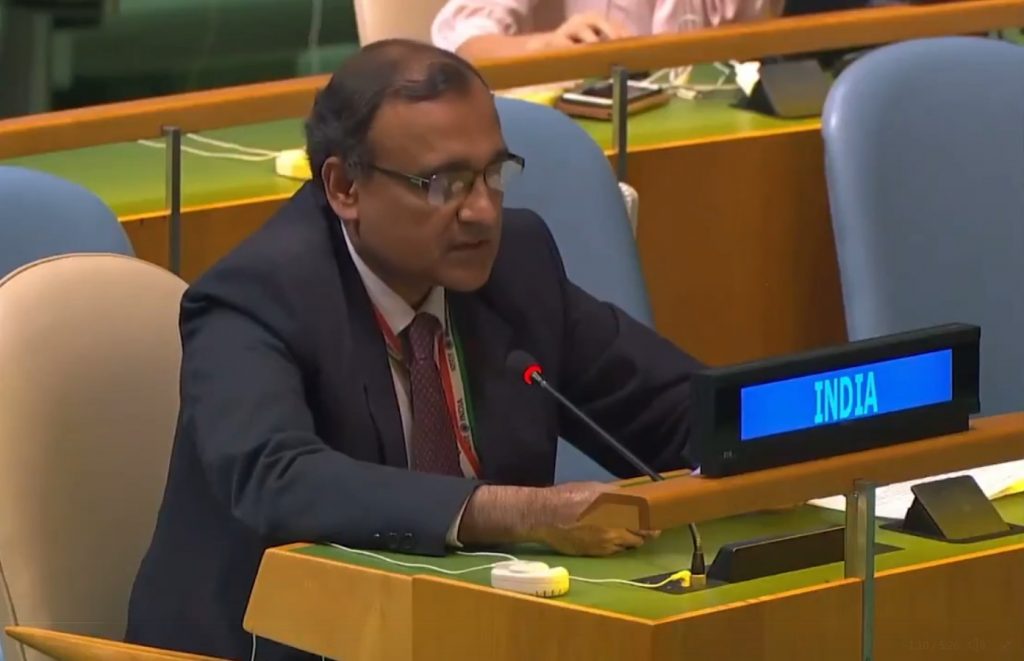World must not go back to the era of ‘your terrorists’ and ‘my terrorists’ and erase gains, Indian Ambassador at United Nations

Ambassador TS Tirumurti, India’s Permanent Representative to the United Nations, has said that while the Global Counter Terrorism Strategy document mentions religious “phobias”, the listing is confined to the three Abrahamic religions. “This august body has once again failed to acknowledge the rise of hatred and violent terrorist attacks against other religions, inter alia, Buddhism, Sikhism and Hinduism,” he said. He said that justifying terrorism will only provide fodder for terrorists to enhance their activities.
India’s envoy to the United Nations made these remarks during a General Assembly debate about a resolution on the seventh Review of Global Counter Terrorism Strategy.
Tirumurti said that while the strategy adopted in 2006, was “agreed that terrorism in all its forms and manifestations should be condemned, there cannot be any exception or justification for any act of terrorism, regardless of motivations behind such acts” or who committed it, “It was also recognised that the menace of terrorism cannot be and should not be associated with any religion, nationality, civilisation or ethnic group.”
“The United Nations is not a body or the forum where member states should take sides on religious phobias, but should instead truly foster a culture based on universal principles of humanity and compassion so that terrorists’ narratives are fought collectively,” he added.
He added that the threat of terrorism was grave and universal. He noted that before the 9/11 attacks, the global community made distinctions between “your terrorists” and “my terrorists”.
“Twenty years later, we are now seeing attempts to divide us once again by adopting new terminologies under the guise of ‘emerging threats’ such as racially and ethnically-motivated violent extremism, violent nationalism, right wing extremism, etc,” Tirumurti said. “I do hope that member states do not forget history and divide terrorism again into different categories and take us back to the era of ‘your terrorists’ and ‘my terrorists’ and erase the gains we have had over the last two decades.”
He further noted that the continued absence of a universally agreed definition of terrorism hampered the efforts to eliminate it. “The current strategy fails to resolve the stalemate preventing the adoption of a comprehensive convention on international terrorism, which India has championed,” he said.
Tirumurti also highlighted the misuse of internet and social media for terrorist propaganda, radicalization and recruitment of cadre. He said that the misuse of new payment methods such as block-chain currencies, payment wallets, crowdfunding platforms for financing of terrorism, and misuse of emerging technologies such as Drones, 3D printing, Artificial Intelligence, Robotics for terrorist purposes have emerged as the most serious threats of terrorism, which warrants collaborative actions from all member states, he urged.
The United Nations’ Global Counter-Terrorism Strategy, which was adopted in 2006, seeks to enhance national, regional and international efforts to counter terrorism. The United Nations General Assembly reviews the strategy every two years. The sixth review of the strategy took place in June 2018. The seventh review was to be held in 2020, but was delayed due to the Covid-19 pandemic.
